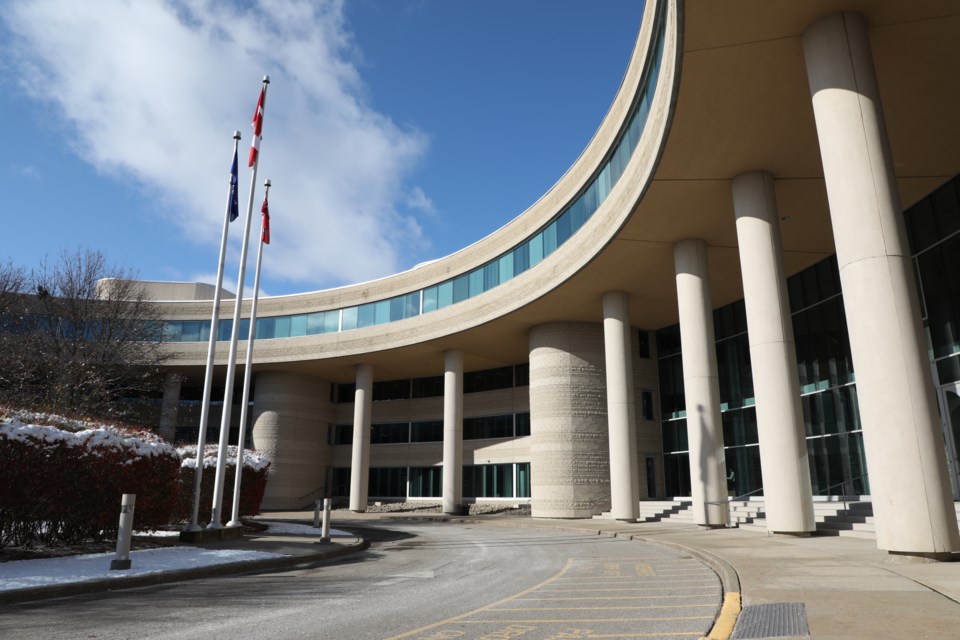York Region is taking a harder stance against a provincial bill it estimates could cost taxpayers $497 million to $1.6 billion over the next 10 years.
Staff presented the detailed implications of the province’s Bill 23, which seeks to streamline the planning process while cutting development charges provided to municipalities.
The region passed a resolution asking the province to make up that funding shortfall, or else York Region will face a 2.3 per cent to a 7.3 per cent property tax impact based on the bill alone. This could come to pass in a future year and will not be part of the 2023 tax increase.
Newmarket Deputy Mayor Tom Vegh said the provincial legislation is taxpayers subsidizing developers. He added that the region should change the terminology of the possible tax rate increase the shortfall could cause.
“This is really the (Premier Doug) Ford impact, and we should start calling it the Ford tax impact. Let him own it,” Vegh said. “He’s the one that causes this to happen.”
Municipalities across the province have protested the bill for months, given the millions they stand to lose under it. Development charges are meant to ensure that developers pay for the infrastructure required to service new projects. But in a bid to address housing shortages and high prices, the province will allow for discounts or eliminations to development charges if homes are developed affordably, defined as 80 per cent of a market rate. Non-profit housing can also get development charge reductions.
The province has pushed back on municipal complaints, arguing that the measures will help reduce housing prices. It has also said municipalities have enough reserves and it plans to audit municipalities to better understand their financial positions.
The province has also said municipalities will be "kept whole" with funding to ensure they can build the infrastructure needed to service the 1.5 million homes it plans to build over the next 10 years.
In a statement responding to the York Region resolution, Chris Poulos, a spokesperson for Minister of Municipal Affairs and Housing Steve Clark, said the tax increase under discussion "does not accurately reflect the changes our government made."
"Through our More Homes Built Faster plan, the government is only eliminating development charges for affordable and not-for-profit housing, which follows the approach already taken by many Ontario municipalities to increase the supply of affordable and non-profit housing," Poulous said. "This doesn’t mean municipalities won’t get revenue from a new home build — it means home ownership won’t keep moving further out of reach for Ontarians because of increased fees that add thousands to the price of a home. In fact, York Region will continue to be able to charge more than $70,000 on a typical home, in addition to the amounts also charged by the region’s individual municipalities”.
But the region resolution calls on the province to enact accountability mechanisms to ensure development charge savings are actually passed onto the consumer, with some municipal skepticism that developers will really pass on savings to buyers.
Region staff said that without more provincial funding, the region’s options to fund infrastructure could include reducing service levels, raising taxes, taking from reserves dedicated to repairing assets, or long-term borrowing. It could also delay growth infrastructure over time, which would impact service levels.
“We really do need the province to keep us whole,” commissioner of finance and treasurer Laura Mirabella said. “To build the growth-related infrastructure that would allow these homes to be built, there would be a significant funding shortfall.”
Newmarket Mayor John Taylor said that provincial responses to this point warrant some escalation. He proposed a tentative tax increase starting in 2024, which would be removed if the province comes up with extra funding.
“We’re trying to financially plan a year and a decade. We need certainty soon,” Taylor said.
Georgina Mayor Margaret Quirk said it would be important to communicate York Region’s struggles with local MPPs and the provincial government.
“They need to understand what this impact truly, truly is to all of us on the ground,” she said.
